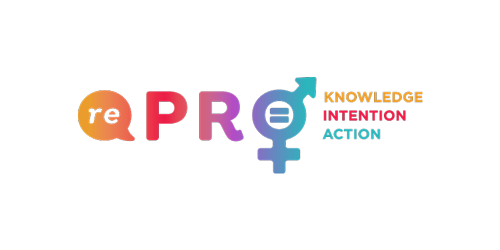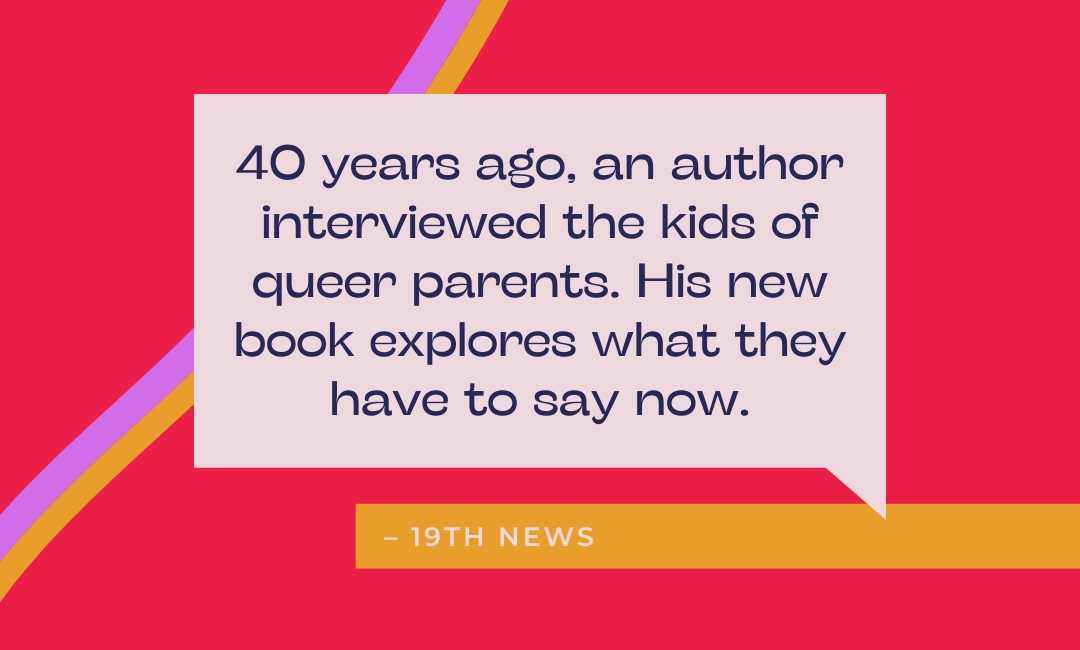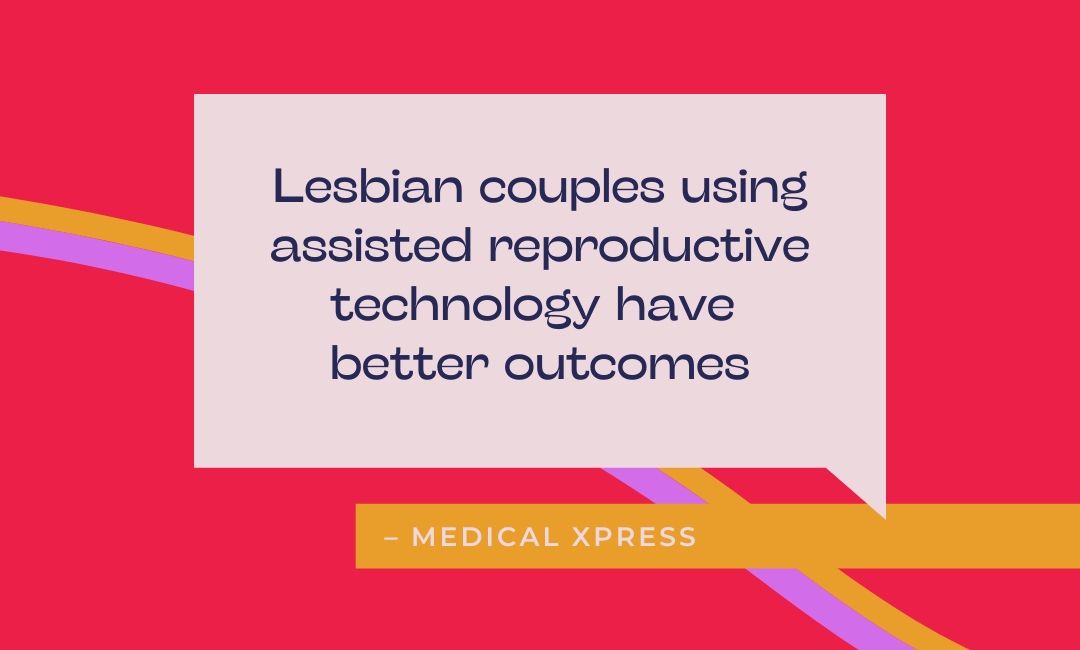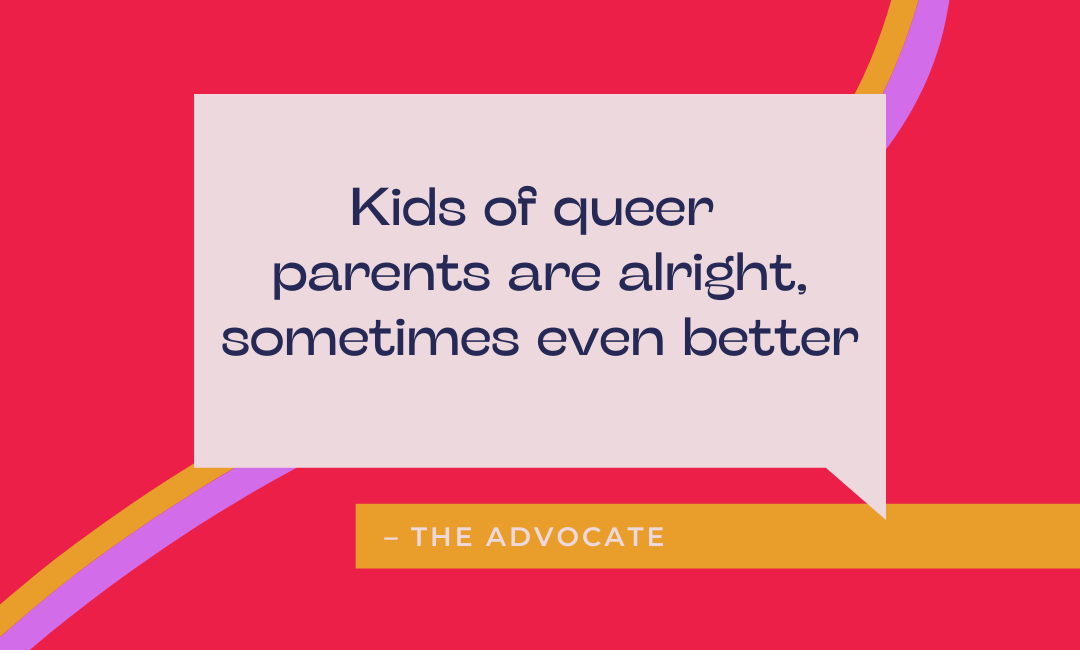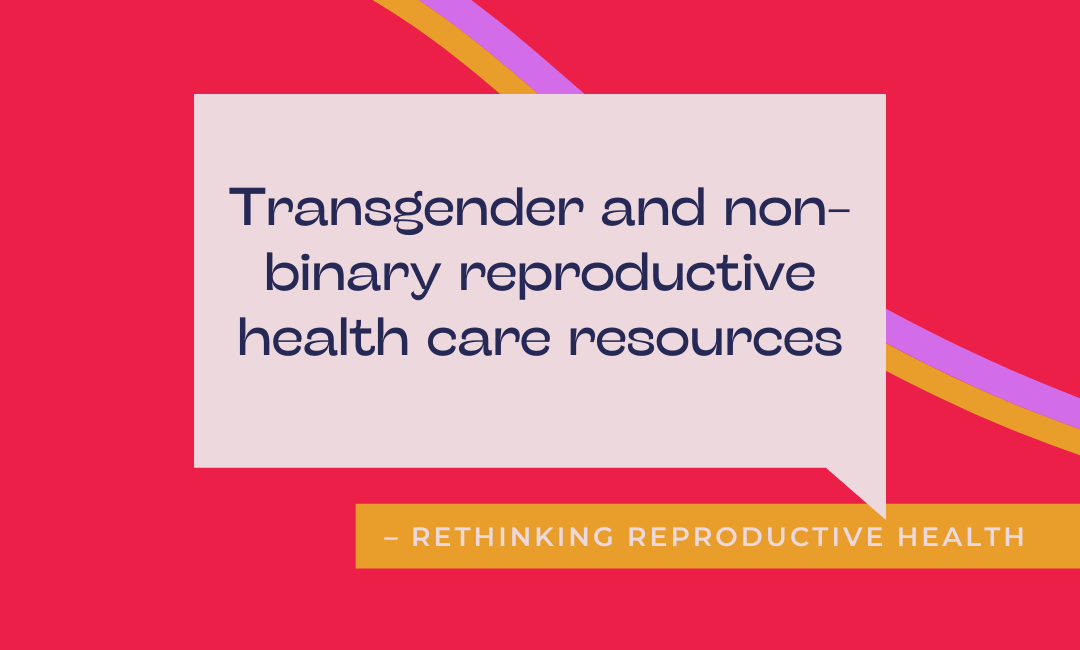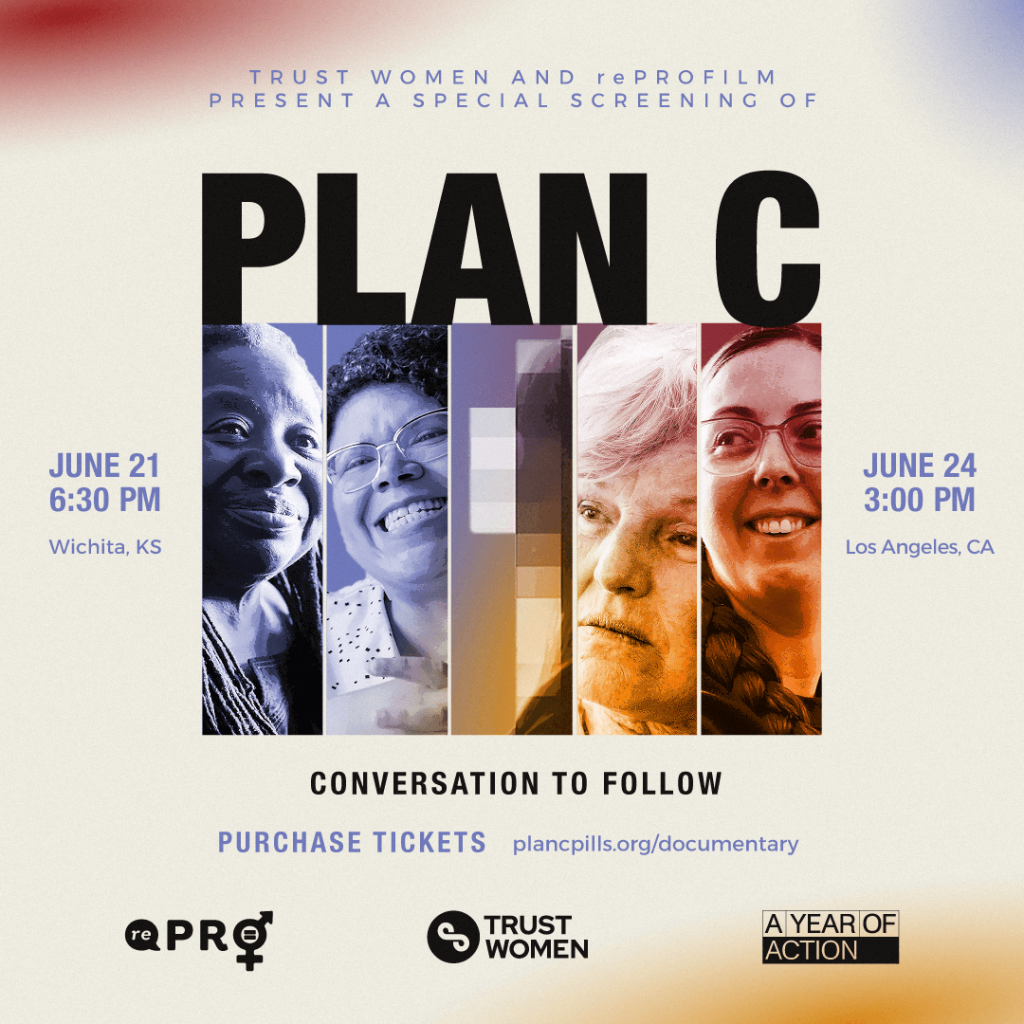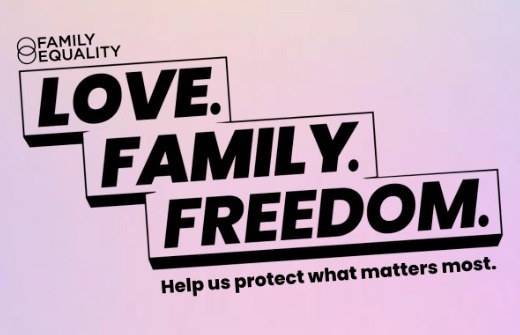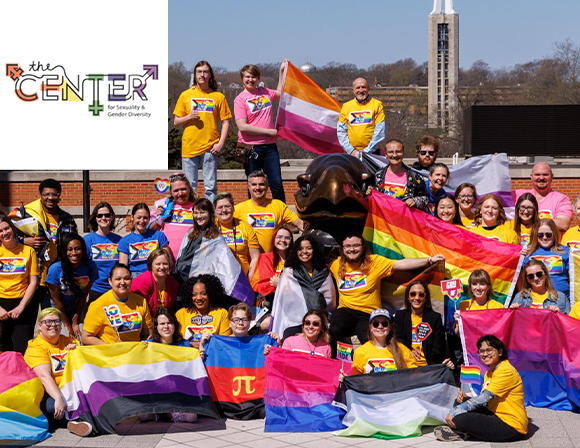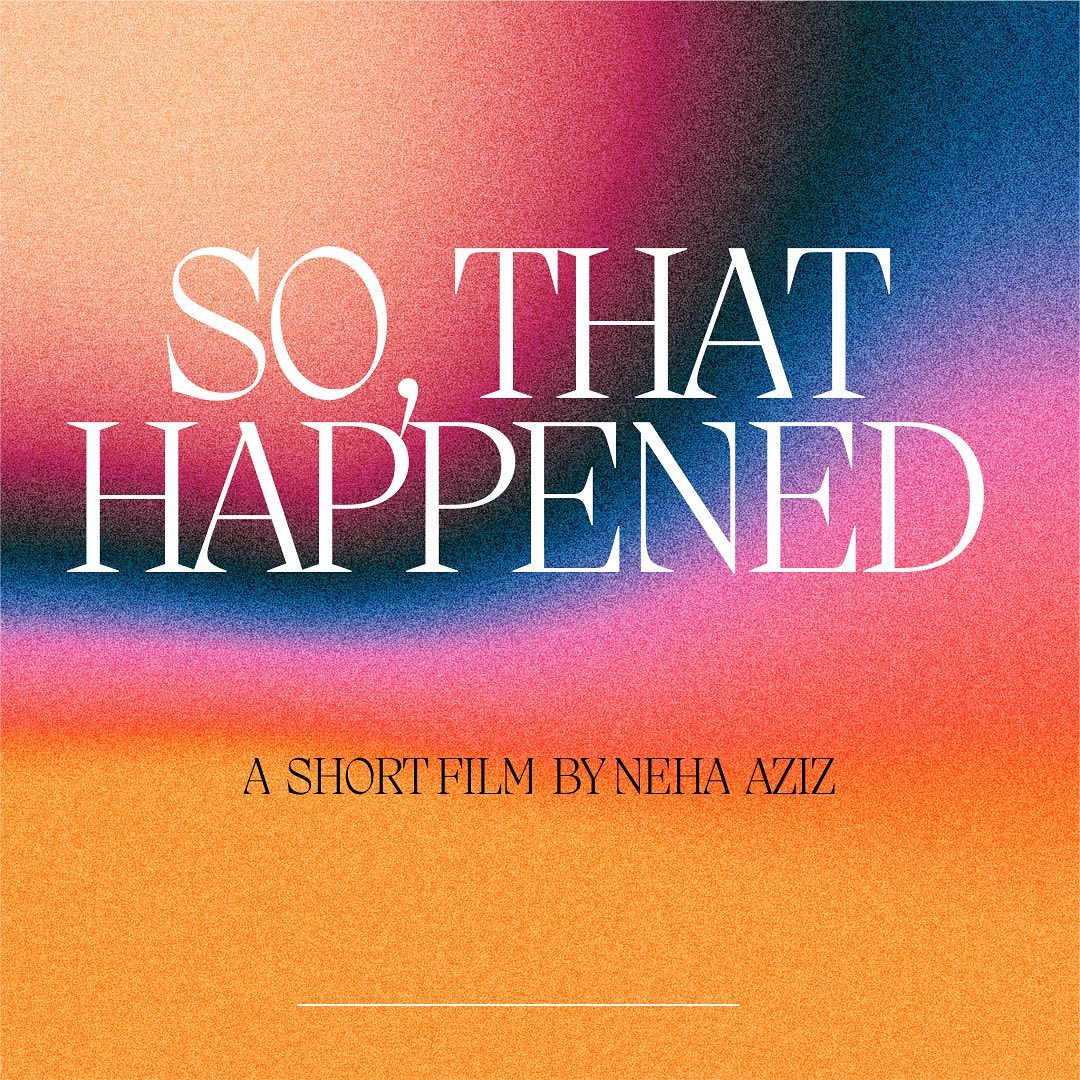The rePROFilm Periodical – featuring a new film and podcast each month – is generously underwritten and is FREE and available to anyone.

Through film and conversation, rePROFilm advocates for reproductive health, justice and bodily autonomy. We lift intersectional issues, using the power of storytelling as a catalyst for knowledge, intention and action.
VOLUME 17
Taking PRIDE in Parenthood
Part 1 – We’re welcoming Pride Month with a celebration of queer parenting. Nearly a third of LGBTQ+ adults are raising a child under 18. Yet queer families still contend with reactionary public policies and a medical system that still has a lot of catching up to do.
We’re struck by two recent studies. One suggests that more than half of queer parents in Florida have considered moving out of state after its “Don’t Say Gay” legislation. Another finds that children of queer parents have similar — and sometimes better — outcomes than children raised in “traditional” family structures.
Our film selection this month illustrates how parenting in a queer relationship can open a couple up to both harm and joy. After watching two episodes from the short documentary series “Who Gets to Parent?,” we know you’ll fall in love with its protagonists Timmia and Pere DeRoy, a Kansas couple who chose to become parents by using assisted reproductive technology.
“Who Gets to Parent?” is a powerful argument for the right of every person — queer or straight — to be free to make the reproductive choices that are right for them. Here’s to vanguards like the DeRoys who make that abundantly clear.
IN VITRO VERITAS
Part 2 – This week, we’re continuing our celebration of queer families.
We’re halfway through Pride month, and it feels like we’ve spent enough time debating how corporations co-opt queer celebrations to market their products. Instead, why not direct our attention to work made by queer people?
That’s what we’re doing in Vol. 17 of the rePROFilm Periodical, which features the documentary series “Who Gets to Parent?” When Timmia and Pere DeRoy decided to use assisted reproductive technology to start their family, they didn’t know any queer couples who had been through the same process. The grad students brought both their personal story and their research chops to the project.
The result is both useful and moving, an argument for choice-based parenting, no matter who you are.

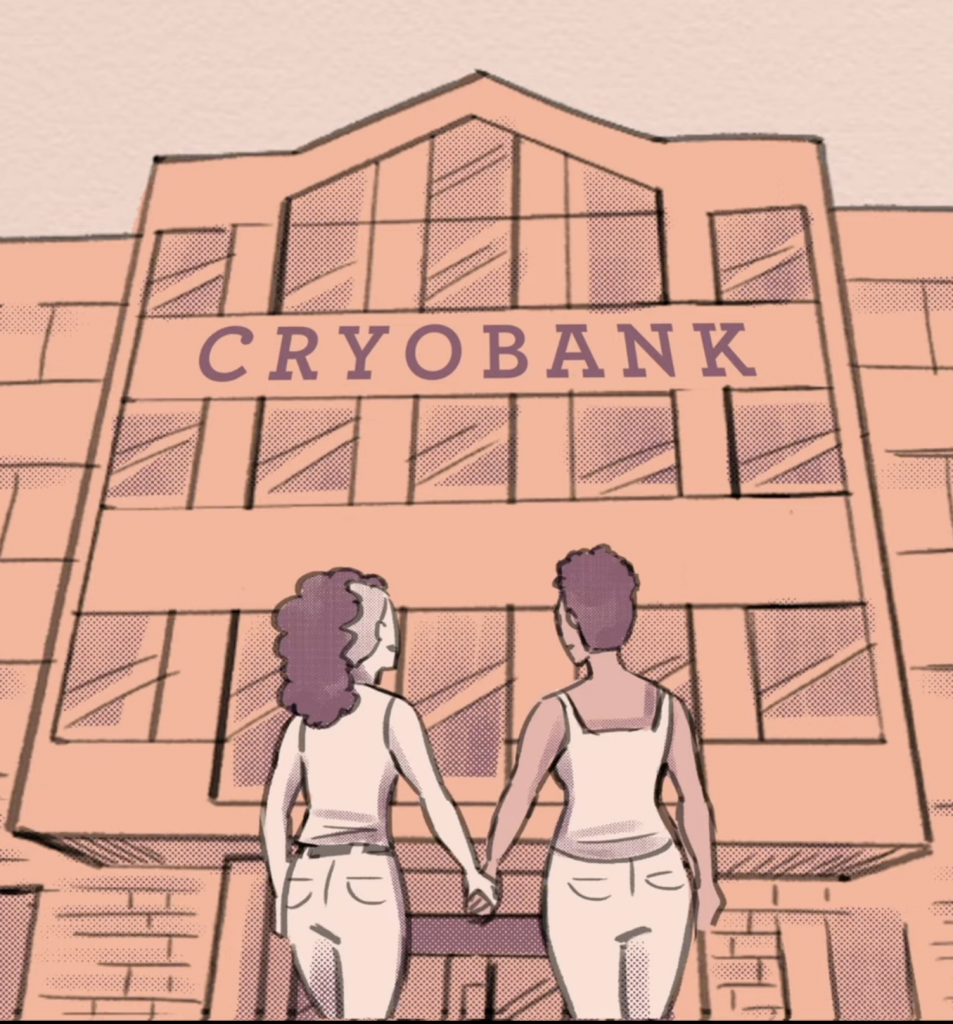
THE RAINBOW CONNECTION
Forget earth tones and shades of gray — boring colors are for the other 11 months of the year!
In honor of Gilbert Baker, the Kansas-born artist who designed the first Pride flag, here’s our ROY-G-BIV-inspired soundtrack, from “Red” to “Green Lights,” to “Purple Rain” — a full spectrum of songs.
“We started pouring so much more love into each other and patience into each other because we realized how alone we were on this journey.” — Pere DeRoy

40 years ago, an author interviewed the kids of queer parents. His new book explores what they have to say now.
A timely new book sheds light on the experience of growing up in queer families. “‘A Secret I Can’t Tell’ is not just a rare history about youth raised by queer parents in the 1980s; it is an eerily timely arrival as anti-LGBTQ+ laws are sending many queer families back into the closet,” writes Kate Sosin.
Lesbian couples using assisted reproductive technology have better outcomes
This exhaustive list of reproductive health resources includes book and podcast recs along with information about lactation support, childbirth and parenting education, and fertility. Many of the resources are virtual, but there’s also info about in-person services for LA-area folks.
Kids of queer parents are alright, sometimes even better
“Children of same-sex couples do just as well in life as those with opposite-sex parents — and in some cases, better, according to a new study” by Chinese and American researchers, whose findings suggest that children of “sexual minority” couples may have advantages, including better relationships with their parents.
Transgender and non-binary reproductive health care resources
This exhaustive list of reproductive health resources includes book and podcast recs along with information about lactation support, childbirth and parenting education, and fertility. Many of the resources are virtual, but there’s also info about in-person services for LA-area folks.
“PLAN C” in person: Wichita & Los Angeles
Directed by Tracy Droz-Tragos | USA | 2023 | 99m.
Wednesday, June 21, 6:30pm, Wichita Art Museum (Wichita, KS)
Saturday, June 24, 3:00pm, Vidiots (Los Angeles, CA), Filmmakers in Attendance
To mark one year since the Supreme Court overturned Dobbs v. Jackson, effectively removing American’s constitutional right to abortion, Trust Women and rePROFilm present two special screenings of the documentary PLAN C (Sundance, SXSW 2023).
Shot over the past four years by award-winning filmmaker Tracy Droz Tragos, PLAN C is a documentary capturing the work of Plan C (the abortion pill access campaign of the same name) as well as the work of many activists and providers fighting to improve access to abortion pills in the face of crumbling reproductive rights & access across the U.S.
Virtual event: The path to reproductive freedom a year after Dobbs
Join us for a virtual event on June 21 that will spotlight the short film “Under G-d” and bring filmmakers, advocates, and legal scholars together to discuss the ramifications of Dobbs v. Jackson Women’s Health Organization and where we go from here.
Family Equality
Founded in 1979 at the National March on Washington for Lesbian and Gay Rights, Family Equality has spent more than 40 years ensuring that everyone has the freedom to find, form, and sustain their families by advancing equality for the LGBTQ+ community. Check out their directory of LGBTQ family groups to find support near you.
The Center for Sexuality & Gender Diversity at the University of Kansas
advocates for livability, fosters wellness, critically educates, and creates connections with and for queer and trans students, faculty, and staff alongside the broader KU community.
“So, That Happened”
rePROFilm programmer Neha Aziz is raising money to make a short film. She quickly met her goal of $15K, but you can still kick a few dollars her way.
The film follows Sheila and Imran who haven’t seen each other since college, but when Imran moves back to Austin, an opportunity arises for the pair to get acquainted once more.
And look for “So, That Happened” on the 2024 film festival circuit!
rePROFilm endeavors to make our programming a safe, accessible and welcome place for anyone who wants to participate. We acknowledge that we have much to learn about creating this space, and welcome and and all feedback that can make us better aware and able to support all minds and bodies.
We are committed to screening films in accessible venues, and also understand that meeting ADA standards for accessibility does not actually mean a venue is actually accommodating for everyone. As best we can, we will offer a complimentary companion ticket to our film screenings as requested. For our virtual screenings, we ask all filmmaking teams to provide closed captioning, audio descriptions or open captions whenever possible. For any questions, please contact us at 323-810-6909 or help@reprofilm.org. We are here to do our best to make our programming as inclusive as possible.
